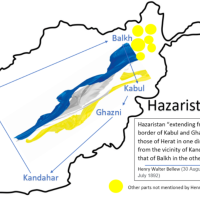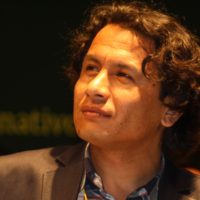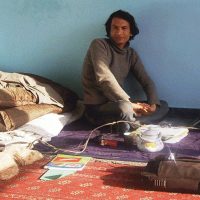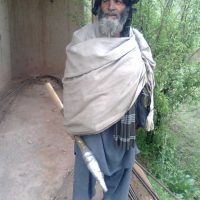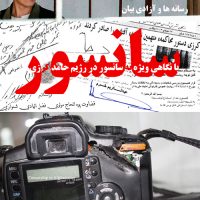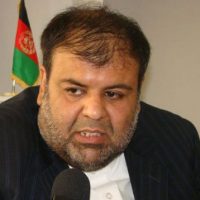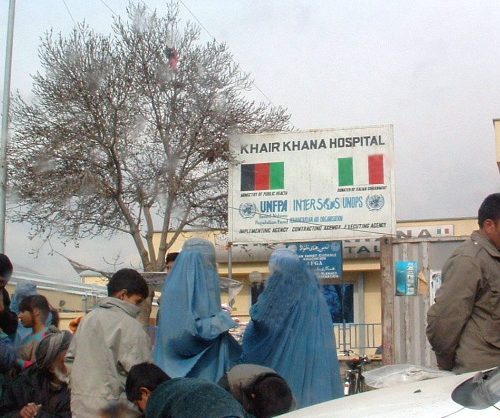
One million dollars embezzled from Kabul hospital project?
By Kamran Mir Hazar and Robert Maier
Note: Kamran Mir Hazar prepared this report, including evidence, two years ago when he was the head of the News Department at Radio Kleed in Kabul. Unfortunately, the Attorney General’s Office of Afghanistan has done nothing yet to arrest or question the accused people. They have been contacted repeatedly and been provided with documents and other evidence.
Mr. Gary K. Helseth, General Director of the 600 millionUSD-a-year United Nations Office of Project Services-Afghanistan(UNOPS) who had worked in Afghanistan for over 20 years, left the country two months after this report was first published. His U.N. e-mail addresses are not functional, and so far, we have been unable to contact him for additional information.
The Project
In 2002, the Ministry of Public Health of Afghanistan asked UNOPS to add 50 more beds to the 52 bed Khairkhana Hospital. UNOPS accepted the project. The Italian Government Foreign Office then committed funding up to 2,200,000 USD for this project.
After the funds were delivered to UNOPS- Afghanistan, they were released to the global Italian aid organization, Intersos— less 270,000 USD of the original amount, which apparently was taken by UNOPS. Intersos is a corporation that operates as an NGO in Afghanistan and has an office in Shahr-e-Now, Kabul. It was organized primarily by the Italian Trade Union Confederation in 1992, and has a current annual budget of approximately 30,000,000 USD.
Afghan Government Investigation
The hospital project was overseen by Intersos, but what was the result and how much of the 2,200,000 USD was actually spent on the project? In this regard Mr. Samadi, Director of Criminal Investigation Department of Attorney General Office says:
The Intersos Corporation did not work on the project but signed a contract with another Afghan Corporation called Ahyaye Mojadad Char Dehi, led by Engineer Amin for 920,000 USD. Where did the balance of 1,010,000 USD go?
Mr. Samadi adds, “we asked the hospital personnel and the employees of the Afghan Corporation who worked on the project with the Intersos organization, and eventually found that this Afghan Corporation had some collusion and arrangements with Intersos. Based on our evaluation and inventory, they did not spend more than 250,000 to 300,000 USD on the project.”
The Attorney General’s Office claims that they have found some concrete evidence and documents for this project. They are looking for Engineer Amin who they suspect may have embezzled some funds, but he cannot be found. Mr. Samadi says that Engineer Amin once phoned the Attorney General’s Office and threatened them not to investigate this case.
Mr. Samadi, stated that Intersos allocated 80,000 USD just for the demolition of two old rooms at the main gate of the hospital. When I asked him why he did not summon and investigate the foreign people involved in the project, he answered:
The Legal and Consulting Board of the Office of President sent us a letter in which it indicated that it is within our jurisdiction to make a claim against Intersos in an Afghan court. We then contacted the Italian Embassy and said that if they refused to assist us with this case, we would take it to the World Court in The Hague through our Ministry of Foreign Affairs and the UN. This was too great of an amount of money for poor Afghanistan to let just go missing, and possibly embezzled.
No Prosecution
The question remains: Why is the Attorney General’s Office, despite its legal jurisdiction and separation of judicial power from the executive, still under the influence the Office of the President. Do the foreign people involved in this project deserve political immunity from prosecution?
It is clear that the Attorney General can prosecute foreigners based on domestic laws. Only Ambassadors, Diplomats and C and D grade foreign officials of the UN have political immunity, so in this case all of the Intersos people involved in this project may be legally prosecuted.
While the Attorney General’s office did not know Intersos’ Kabul address, I found it in Shar-e -Now (New City) Kabul. I visited the office and found a Mr. Marco Rotelli, who did not answer my simple questions but refered me to UNOPS. I tried to contact the responsible persons at UNFPA and UNOPS in Afghanistan. Eventually, I made an appointment with the spokesperson and the Director of UNFPA.
Interview with Gary K. Helseth
Mr. Gary K. Helseth firmly rejected the possibility for any kind of embezzlement in this project. He said that the project was very successful and they were satisfied with its completion.
He added that they had employed an Afghan Engineer and a foreign engineer for this project and all the contracts had been already signed in New York.
Regarding the amount of 2,200,000 USD, he said that Intersos Corporation received 2,000,000 for the project, and 200,000 USD was spent on travel expenses and salaries of experts and employees. He said that the Intersos Corporation had been introduced to UNOPS by the Italian Government.
When I asked Mr. Helseth why Intersos did not do the project itself but instead signed a contract with Ahyaye Mojadad Char Dehi, he answered, “It is not true!” He added that Intersos signed a contract with a different corporation, and the money was spent by that corporation. He said they have documents that show that this project was done well.
Regarding a question of the term of the warranty for the constructed building, Mr. Helseth said that this project was guaranteed for one year . “A few years ago we could not guarantee a project for even a year. Most projects in Afghanistan are guaranteed for just three or four months.” He agreed that the amount of 80,000 USD was too much for the demolition of two old rooms in the hospital and said he would check the documents.
“Mr. Helseth, please count and check this project penny by penny and kindly give me the documents to see when ready,” I said and he agreed to do so.
A few days later, I received a call from Mr. Helseth. He happily said that he had some ten kilos of documents on this project showing that it was completed successfully, and added that I could come pick them up at his office. When I arrived, he was photocopying the documents, so we agreed that he would send them to my office in Radio Kaleed.
After they arrived, I looked for some experts regarding these documents.
Experts Disagree With UNOPS Findings
The experts who accepted my request did want me to reveal their names. One of them still works with the USAID and has completed many projects with that organization. He said, the total cost of this project is 646,900 USD Compared to the budget of 2,200,000USD about 1,550,100 USD is unaccounted for. This expert emphasized that the budget belonged to 2002 and currently it must be more because costs are higher.
Another expert who also wished to remain anonymous estimated the project cost to be 776,280 USD with 1,423,720 USD unaccounted for. He emphasized that for an amount of 776,280 USD “we can build a hospital of about 2,587 square meter (20,000 sq. ft.) to a global standard.”
This is the amount of space required by the Intersos and UNOPS Khairkhana Hospital project. He added that “even if we ignore the real amount spent, the maximum amount showed in the reports of the project is still 1,035,000 USD which shows the possible embezzlement of more than one million USD on this single project.”
Now we should ask Mr. Gary Helseth, former Director of UNOPS in Afghanistan how he defends his organization and Intersos in this project.
Claims of Shoddy Construction at Khairkhana Hospital
When I was making this report, I went to Khairkhana Hospital and met some of the patients. Asked if this hospital met global standards, Mr. Mohibullah Nejat the Director said; ” The main problem of the new constructed building is its plumbing system, which was to some extent repaired by the coalition forces about four months ago, and is a bit better now.
“The building that was built by Intersos does not have a ventilation system or a medical waste system, which are required for a medical complex. Medical complexes need special engineers, who know about these things,” he added.
Unfortunately when evaluating completed projects in Afghanistan more carefully, we discover even greater numbers of possible embezzlement. It is the responsibility of the government to oversee the operations of the NGOs and corporations. The Attorney General’s Office also has a legal duty and responsibility to prosecute the people who steal from society.
Published in Kabul Press (Monday 7 January 2008)


